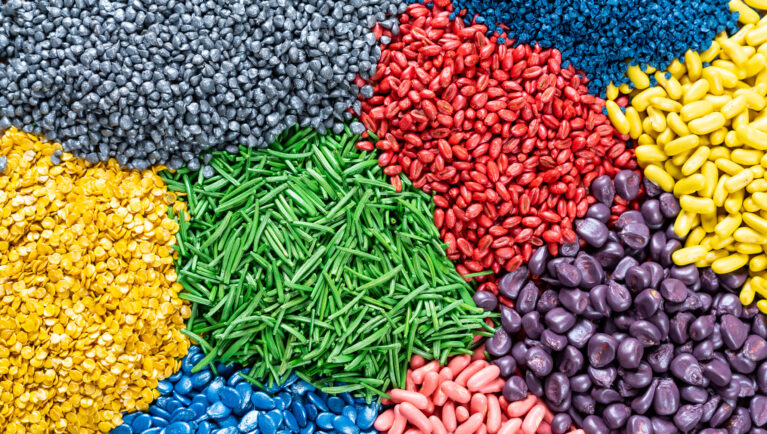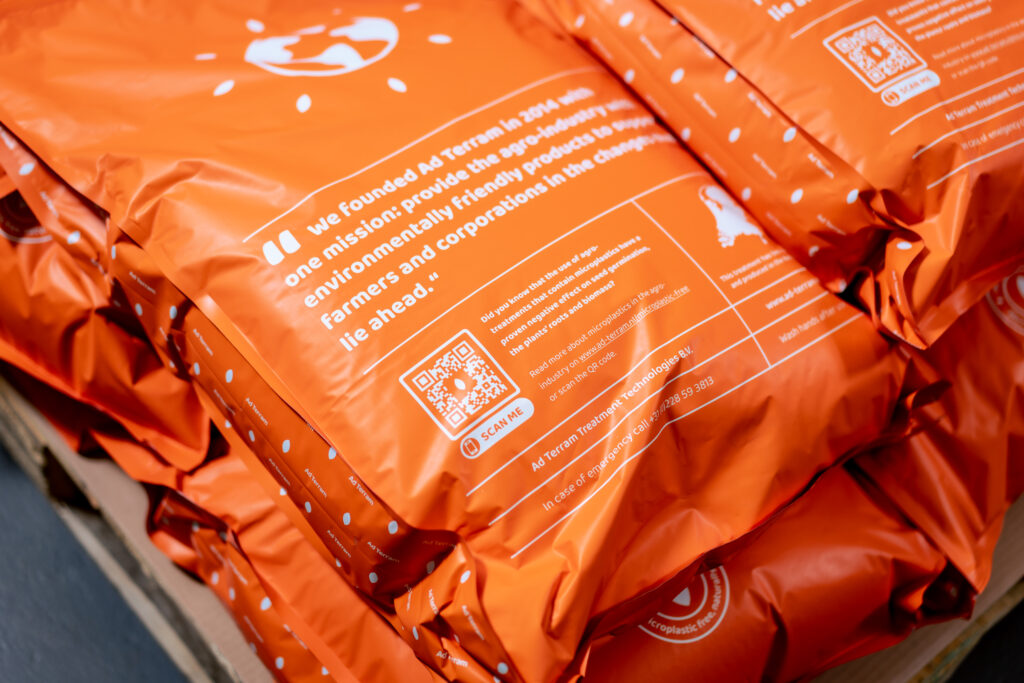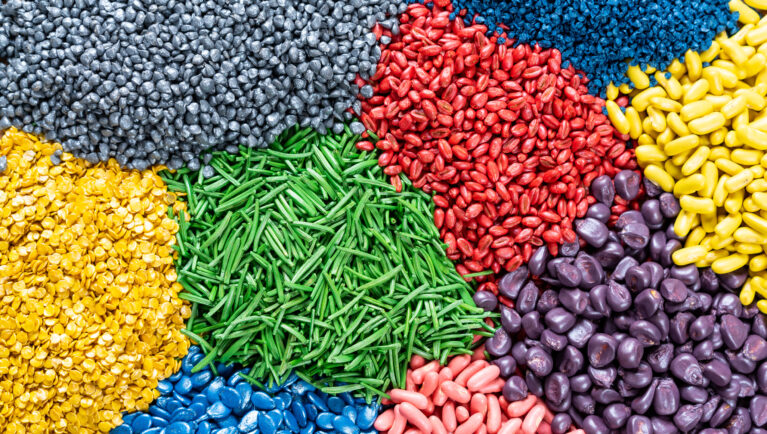
As we become more globally aware of the effects of microplastics on our environment, we need to turn our attention to what steps we can take in agriculture to decrease our impact.
It’s common knowledge that microplastics have a detrimental effect on soil, groundwater and ocean life, but far fewer people realise they may also have immediate detrimental effects on crop success.
Conventional filmcoatings contain synthetic polymers that act as binders for various seed treatment products, yet studies show that microplastics block pores in seeds, which can cause a delay in germination and decreased root growth. Even if your primary focus is on yield and profitability above environmental sustainability, reducing microplastics in your agriculture practice has a beneficial effect.

The writing is on the wall for conventional microplastics. Several nations have already put in legislation banning the use of seed treatment products that contain microplastics, and it will likely only be a matter of time before others follow this path.
Some reason that bioplastics are a solution.
While bioplastics are produced from renewable resources, they can take 100 years or more to biodegrade, causing similar detrimental effects as conventional microplastics in the meantime.
Ad Terram has been prepared for a market shift away from microplastics since we started in 2014. All our products are, and always have been, microplastic-free and suitable for both conventional and certified organic operations.
Our filmcoat products are made entirely from plant-based extracts and are fully biodegrade to the hydrocarbon level within 12 months.
Our microplastic-free filmcoat liquids are easy to apply with any standard filmcoating equipment. In some countries, farmers choose to treat their seeds themselves. In fact, our products are so adaptable that they can even be mixed with seeds in as simple a set-up as a concrete mixer.
Customer service is of high importance to us so no matter what mixing equipment new customers have access to, we’ll gladly teach them how to use our products with their machines.
An especially important bonus of our products is the ultra-fast processing and drying times.
Polymer-based film coats require drying time before bagging, slowing down the production process. Our flimcoating starts hardening out in the filmcoating equipment and emerges nearly dry. The treated seeds can be packed immediately because the hardening out process continues inside the packaging. This saves both time and money by decreasing waiting and increasing the rate of product flow through the machines.
Most importantly, our products work. Going microplastic-free and organic doesn’t, as some people think, mean sacrificing efficacy, thanks to advances in technology.
Ad Terram means ‘for the earth’, and it embodies our mission statement – “To make conventional farming more resilient by improving cultivation with treatments that do not harm the agricultural land and the ground we all live on, our planet.”
Whether you’re looking to move to microplastic-free products, hoping to increase production capacity or wanting to add an organic line, we have products to help you achieve your goals.
I will be at the ASTA Field Crop Seed Convention in Orlando, Florida from December 10-13. If you are attending, come by and meet me and I can answer all your questions. If you’re unable to attend, you can always reach us via our website https://ad-terram.nl

Ad Terram has a broad range of products available. Some key field crop products include:
Fieldcrop Coat Premix is designed to be the most economical option for the high-volume needs of field crop seeds. This product also includes our Optimum Seed biostimulant, which induces longer root growth and increased root hair growth. Additional rooting benefits the plants by increasing water uptake and therefore mineral and fertilizer uptake.
Optimum AMF carries an arbuscular mycorrhizal fungi that forms a symbiotic relationship with the plants. It acts to extend rooting length, giving a deeper reach for water and nutrients. The fungi exchanges sugar from the plants with nutrients and water from the soil through the roots. Optimum AMF can be added to our filmcoat liquid. This is unique because most microbial biostimulants are killed off by the chemicals in a conventional filmcoat. With no harsh chemicals or microplastics, our filmcoat is compatible with the majority of microbial products.
We also offer an encrusting product using Circumeo powder and Fixum binding agents. These can be customized to your needs, whether you want added weight, uniformity for precision planting, water retention, high volume microbials or a combination. Our encrusting product can be a huge time and money saver since drying time is minimal. Where some conventional products need an hour and added heat, our encruster dries in minutes at room temperature.
Optimum Gluco micronutrient products are ideal if you’re facing a micronutrient deficiency. These products combine gluconate with iron, manganese, zinc, copper, or boron and calcium. The gluconic acid used in our Optimum Gluco products ensures the micronutrients are more readily assimilated by the plants than synthetic micronutrients.
We can combine multiple treatments into the filmcoat or encrusting. We work with the customer to determine what their needs are and can develop a custom mix if needed. Our filmcoatings are also compatible with chemicals used in the market, so you can mix field crop coatings with a biostimulant and the chemical of your choice to gain multiple advantages alongside conventional products.
You can learn more about us at http://www.ad-terram.nl/
The post Microplastic-Free Solutions Offer Enhanced Crop Health and Sustainability appeared first on Seed World.
